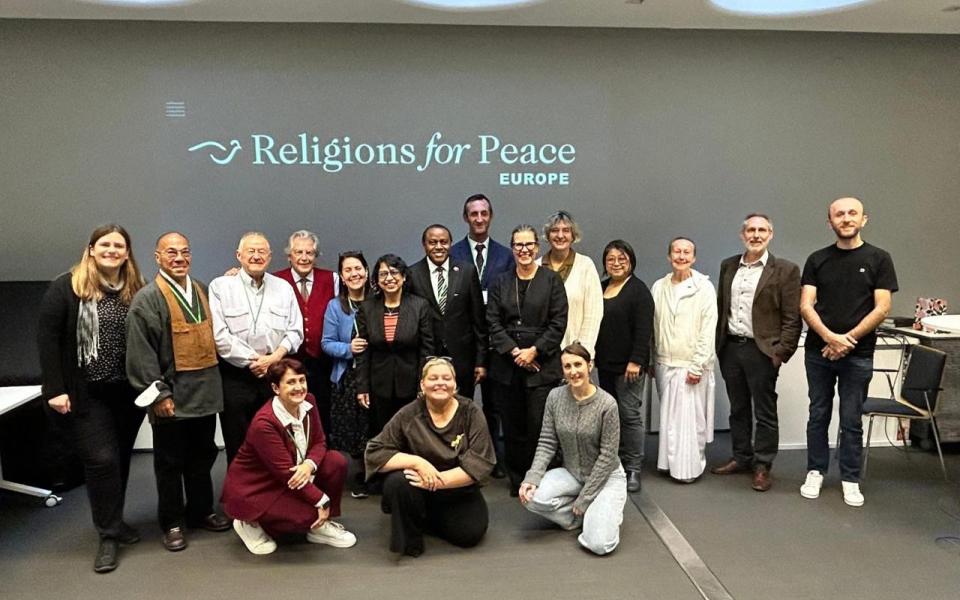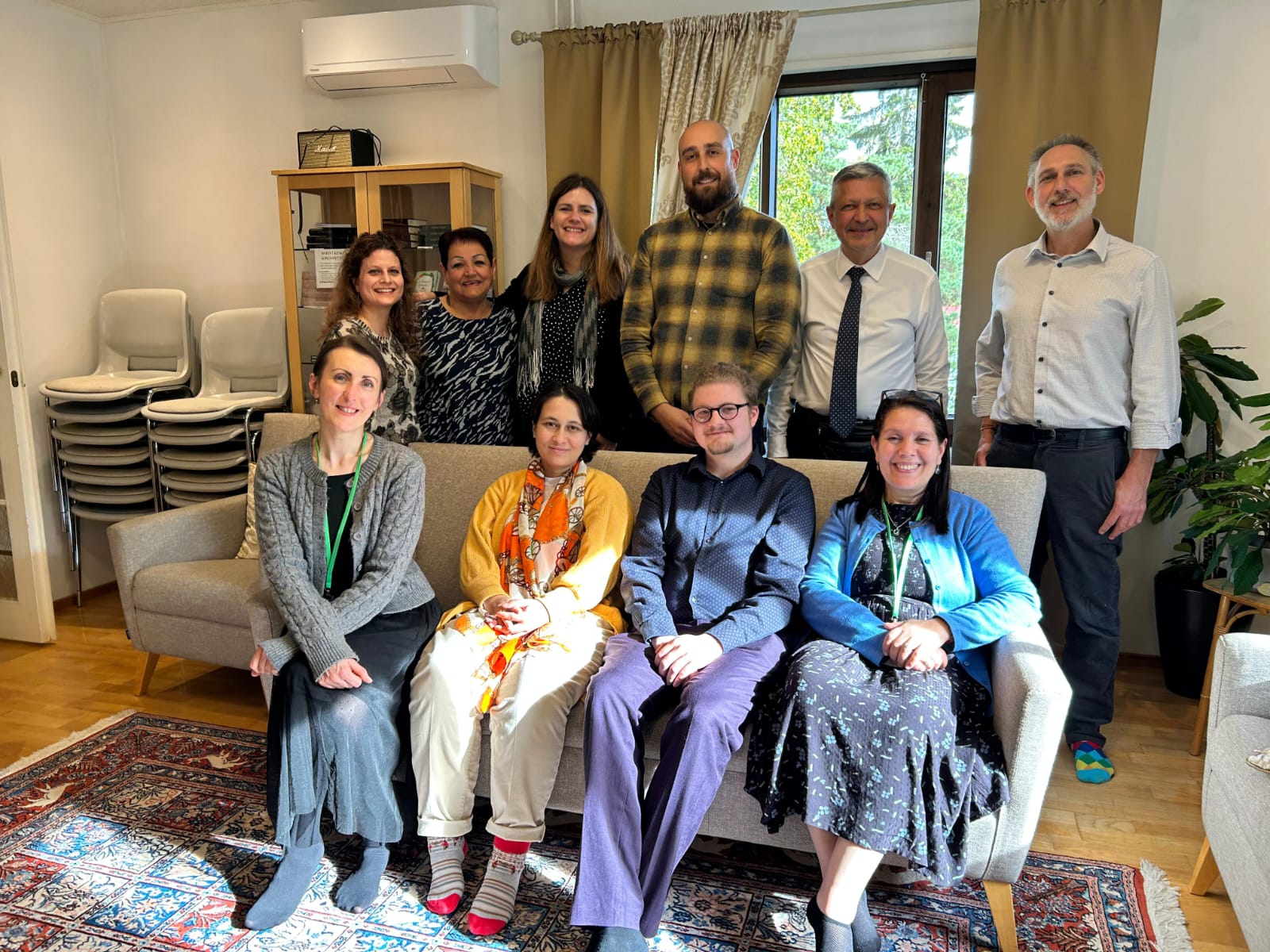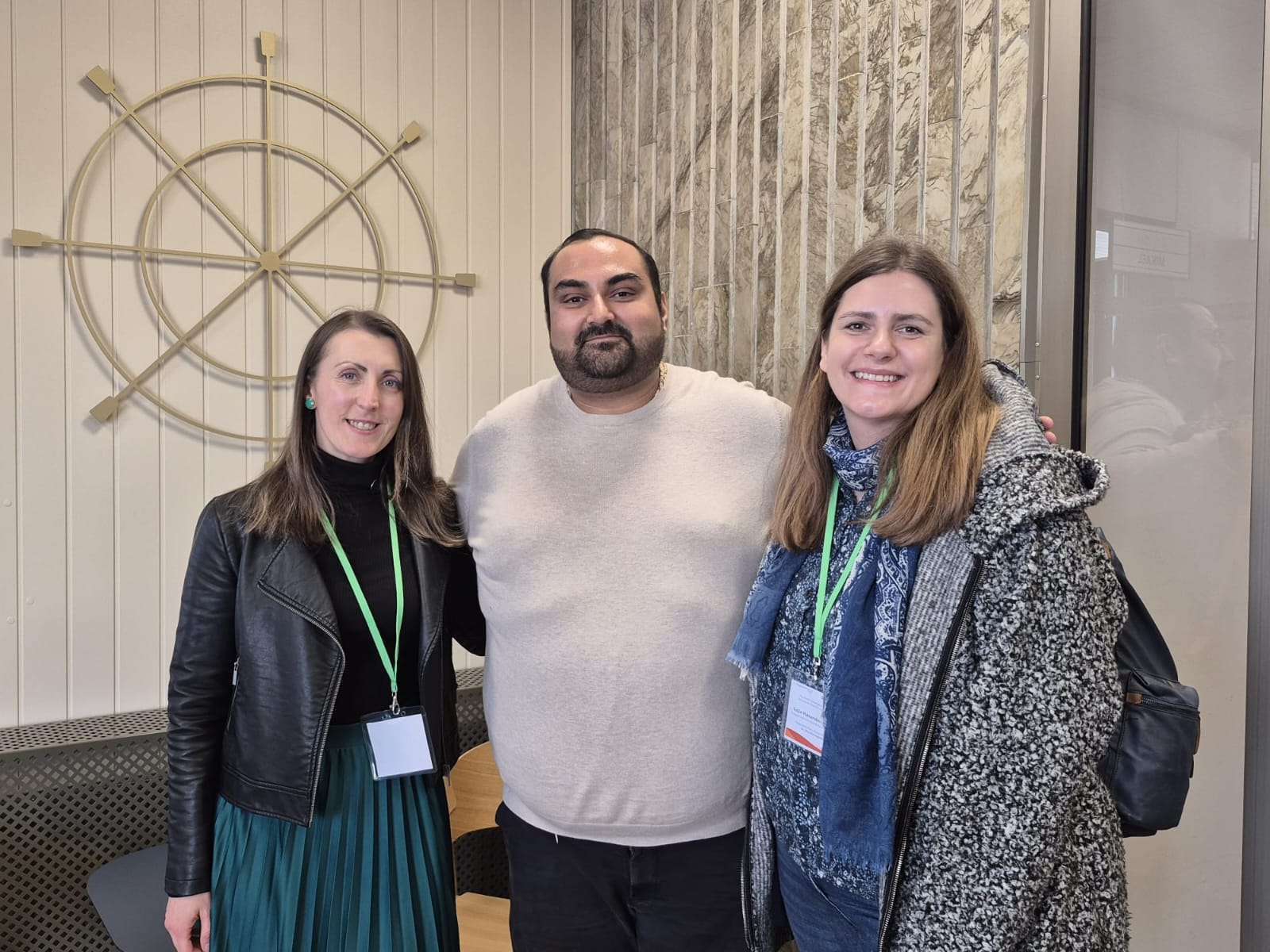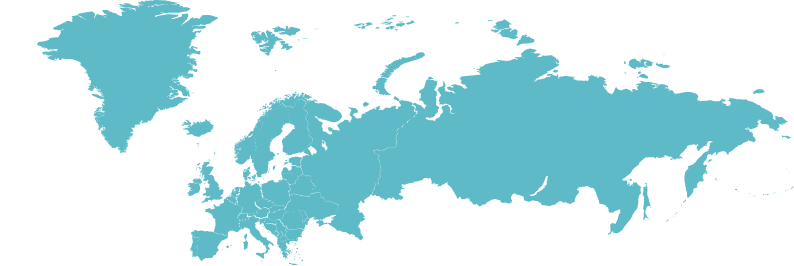
The United Religions Initiative (URI) took part in The Global Convergence Challenge – Summit for Interfaith Unity and Peace, held in Helsinki and hosted by CORE Forum (Religions for Peace Finland). The gathering brought together religious leaders, interfaith actors, and academics from across Europe and beyond to address some of today’s most urgent challenges: polarization, islamophobia, antisemitism, social fragmentation, and the urgent need for dialogue and peace mediation.
Building Unity in Times of Crisis
The summit opened with welcoming words from CORE Forum Chair Pavlos Ylinen and Executive Director Katri Kuusikallio, with Vice-Chair Laura Huovinen skillfully guiding the program.
In his keynote address, Prof. Genti Kruja, President of Religions for Peace Europe, called attention to the alarming rise of extremism and discrimination across Europe, stressing the moral responsibility of religious leaders to raise their voices for peace, justice, and reconciliation. He presented the vision of Shared Sacred Flourishing — a framework that emphasizes unity, dignity, ecological responsibility, and sustainable peace under the guiding principle: Different Faiths, Common Action.
Further contributions came from respected voices, including Mercedesz Czimbalmos (Polin Institute), Angeliki Ziaka (World Council of Churches), Dr. Maria Leppäkari (Secretary General of Religions for Peace Europe), and Imam Ramil Belyaev (Finnish Islamic Congregation). A vibrant panel discussion explored how to counter polarization and religiously motivated racism in Finland, with insights from CORE Forum board members and national experts.

URI’s Role and Partnerships
Representing URI, Lejla Hasandedic-Dapo, URI Membership Growth Coordinator, together with Emina Frljak, URI Europe Board Member, participated actively in the summit, ensuring that URI’s vision of interfaith cooperation, peace, and justice was visible at this high-level European platform.
Beyond the seminar itself, Lejla engaged in several important meetings that highlighted the value of partnership-building. These included fruitful exchanges with representatives of the Network for Religious and Traditional Peacemakers, the iDove initiative, and the Director of the Hindu Forum in Finland.
These discussions opened new pathways for cooperation in youth engagement, interreligious dialogue, and preventing violent extremism through peace education.
“Such partnerships are crucial for expanding URI’s reach and strengthening its impact,” Lejla noted. “They enable us to respond together to the urgent challenges of our time and to promote peace and justice in more sustainable and transformative ways.”
Additionally, they had the great privilege of visiting the Baha'i Center and speaking with its community members.

Reflections
Participation in the Helsinki Summit reaffirmed the central role of interfaith cooperation in addressing today’s overlapping crises. For URI, it was a valuable opportunity not only to contribute to the discussions on countering polarization and advancing dialogue but also to strengthen bonds with European and global partners.
The summit underscored that building unity, compassion, and strong partnerships remains essential for peace in Europe and beyond.
